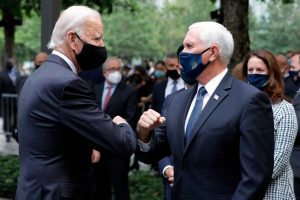The World Health Organization (WHO) and the United Nations Children’s Fund (UNICEF) launched a polio vaccination campaign in Afghanistan on Monday, a nationwide door-to-door effort welcomed by the ruling Taliban.
The vaccination effort, which was announced by the organizations in October, will be the first campaign to reach all children across the country in over three years — including over 3 million children living in rural areas which had “previously remained inaccessible to vaccination campaigns,” a statement read in part.
The Taliban-run Afghan public health ministry announced Sunday the start of the four-day nationwide polio vaccination campaign aimed at inoculating the country’s 10 million children under age 5.
“To eliminate polio completely, every child in every household across Afghanistan must be vaccinated, and with our partners, this is what we are setting out to do,” Hervé Ludovic De Lys, UNICEF representative in Afghanistan, said of the program when it was announced. “This decision will allow us to make a giant stride in the efforts to eradicate polio.”
Mass vaccination campaigns in Afghanistan were halted around 2018, thanks in large part to increased violence between then-rebel Taliban fighters and the U.S.-backed government. The Taliban had barred U.N.-organized vaccination teams from doing door-to-door campaigns in parts of the country under their control, apparently suspicious the team members could be spies for the previous government or the West.
The Taliban has reportedly become more willing to cooperate with international health organizations since they regained power of the country in late August, per statements given to Al Jazeera.
“Without any doubt polio is a disease that without treatment will either kill our children or cause them with permanent disability, so in this case the only way is to implement the vaccination,” said Dr. Qalandar Ebad, the Taliban’s acting public health minister.
The Taliban’s reported endorsement of the campaign appeared aimed at showing the international community they are willing to cooperate with international agencies. The longtime militant insurgent force has been trying to win the world’s recognition of its new government and re-open the door for international aid to rescue the crumbling economy.
WHO and UNICEF leaders commended the Taliban for allowing the campaign to go forward, saying it was a needed step in order to ensure the disease is eradicated both within the country and beyond its borders.
“The urgency with which the Taliban leadership wants the polio campaign to proceed demonstrates a joint commitment to maintain the health system and restart essential immunizations to avert further outbreaks of preventable diseases,” said Dr. Ahmed Al Mandhari, WHO Regional Director for the Eastern Mediterranean.
Polio is a life-threatening disease caused by poliovirus, which can infect a person’s spinal cord and ultimately lead to paralysis. There has only been one confirmed case of polio in Afghanistan in 2021, with a total of 56 during all of 2020.
According to the Global Polio Eradication Initiative, polio remains endemic in only two countries: Afghanistan and neighboring Pakistan.
In order to prevent a polio resurgence or cross-country transmission, health officials have planned a second nationwide vaccination campaign in Afghanistan this December, which will coincide with a similar vaccination initiative in Pakistan.
There have been recent outbreaks in around two dozen other countries, the vast majority of which are in Africa. Five countries — Indonesia, Mozambique, Myanmar, Papua New Guinea and the Philippines — remain at risk for polio resurgence, spurred by “low levels of immunity and surveillance” for the disease.
The Associated Press contributed to this report.




